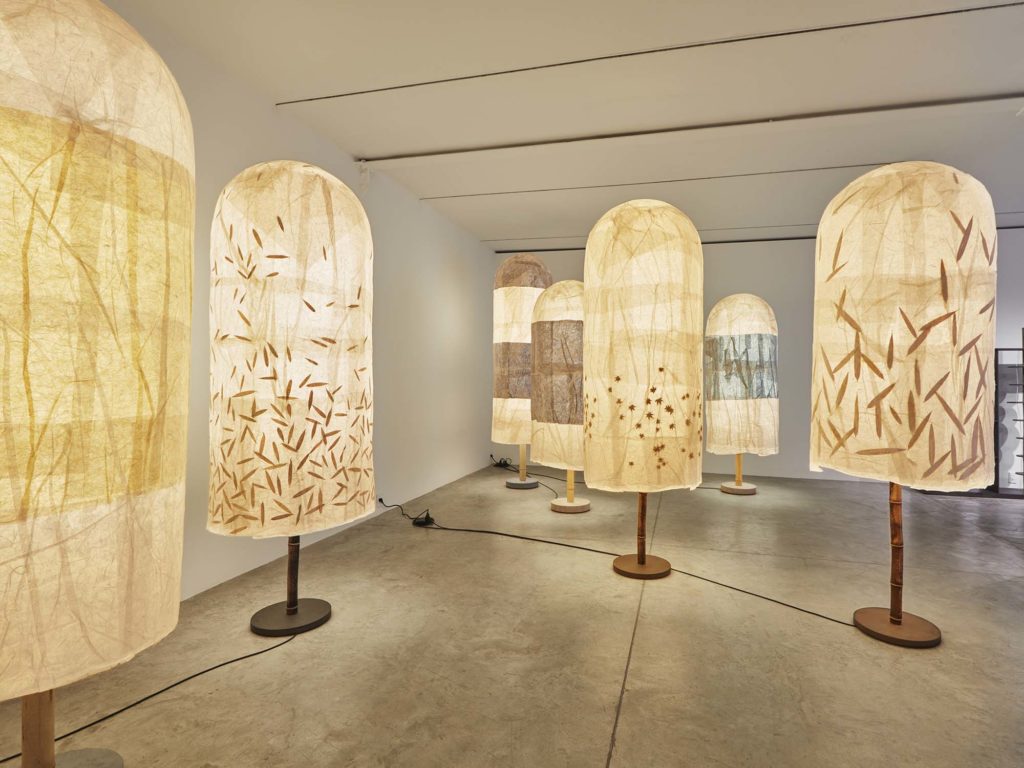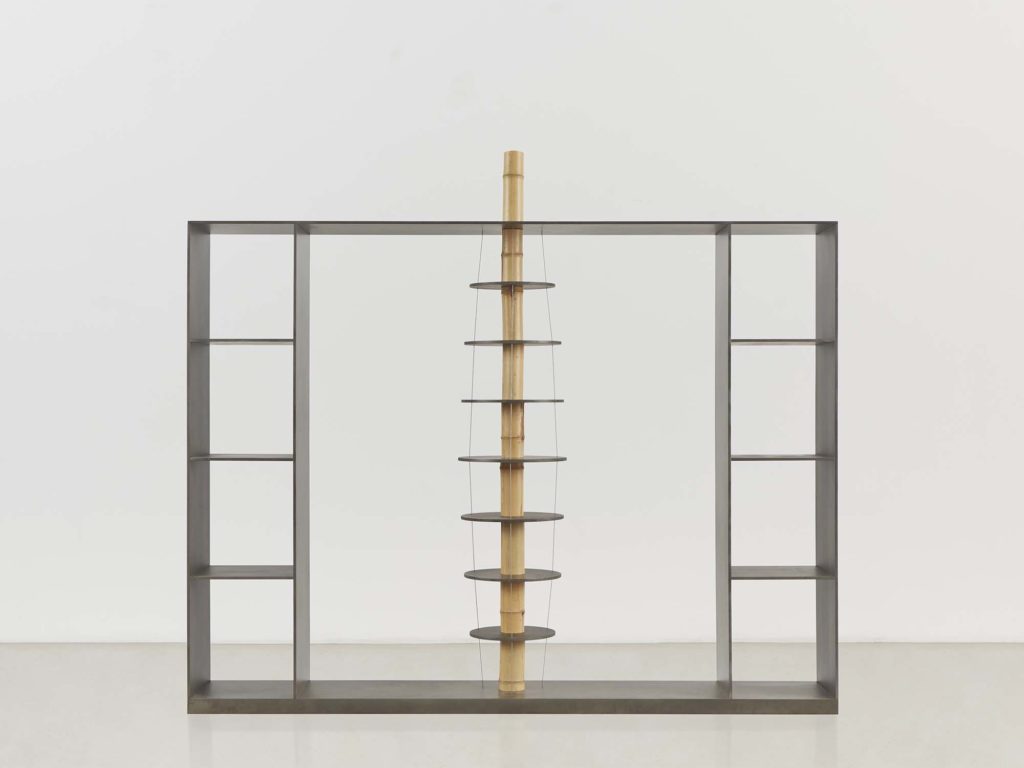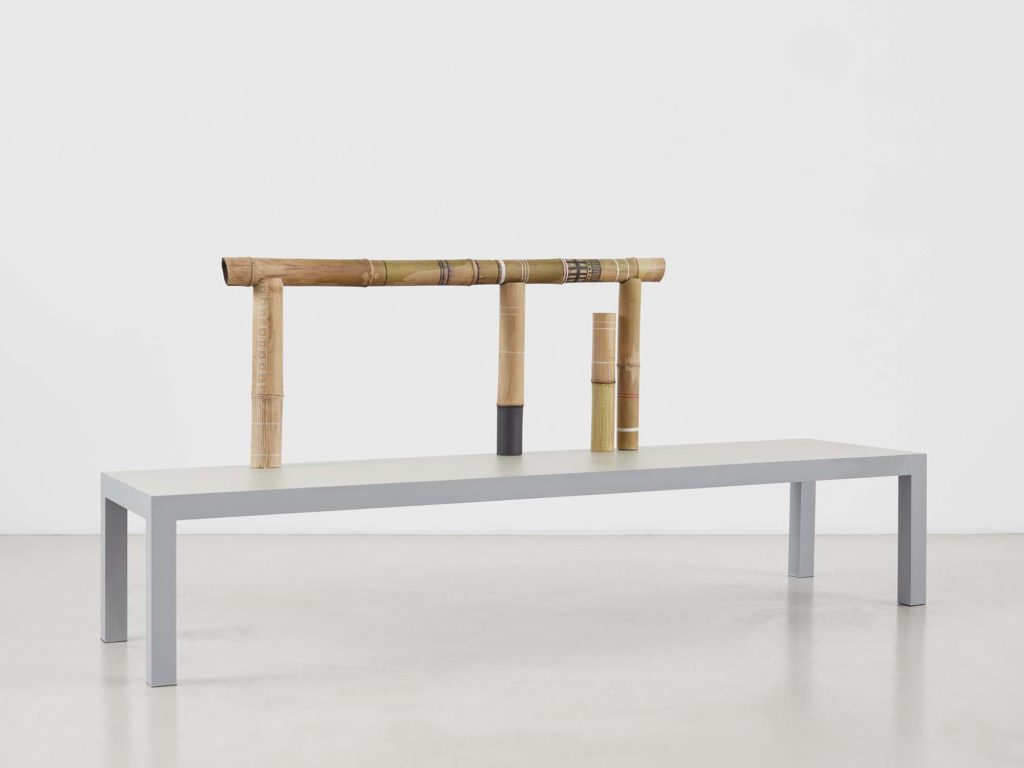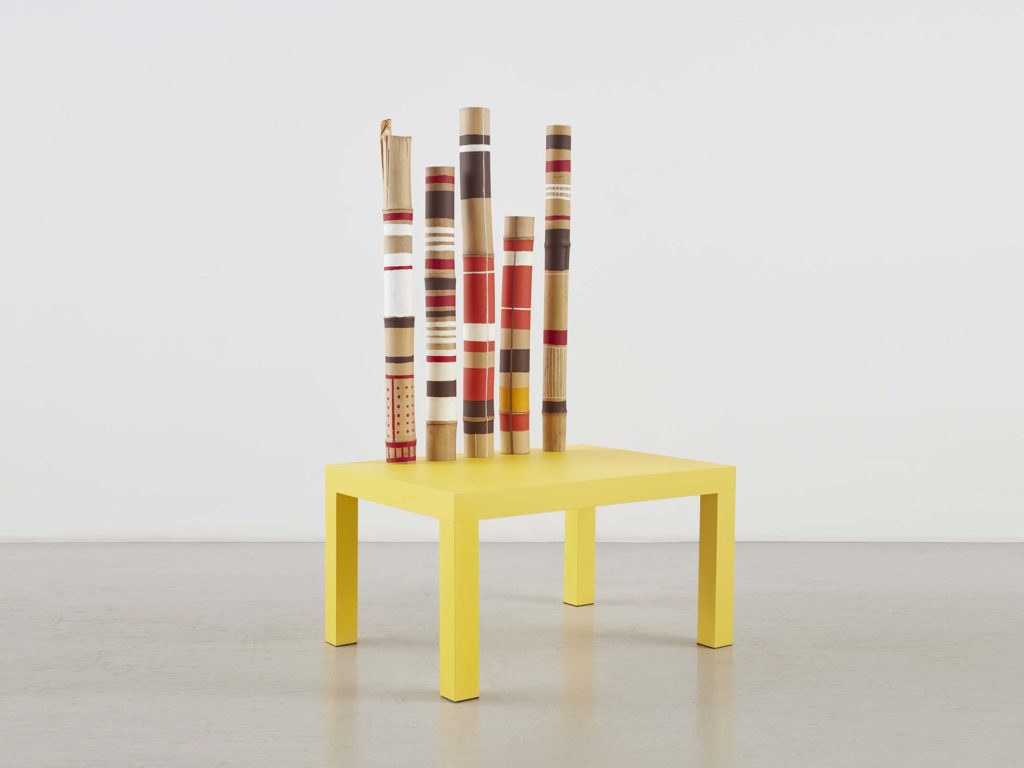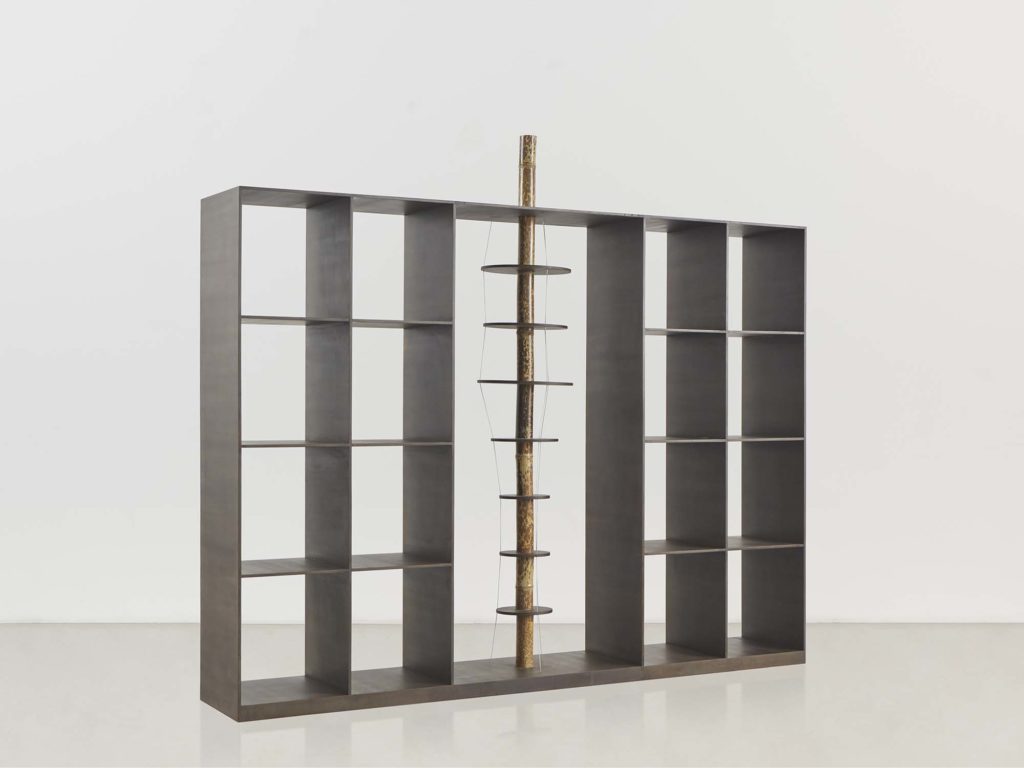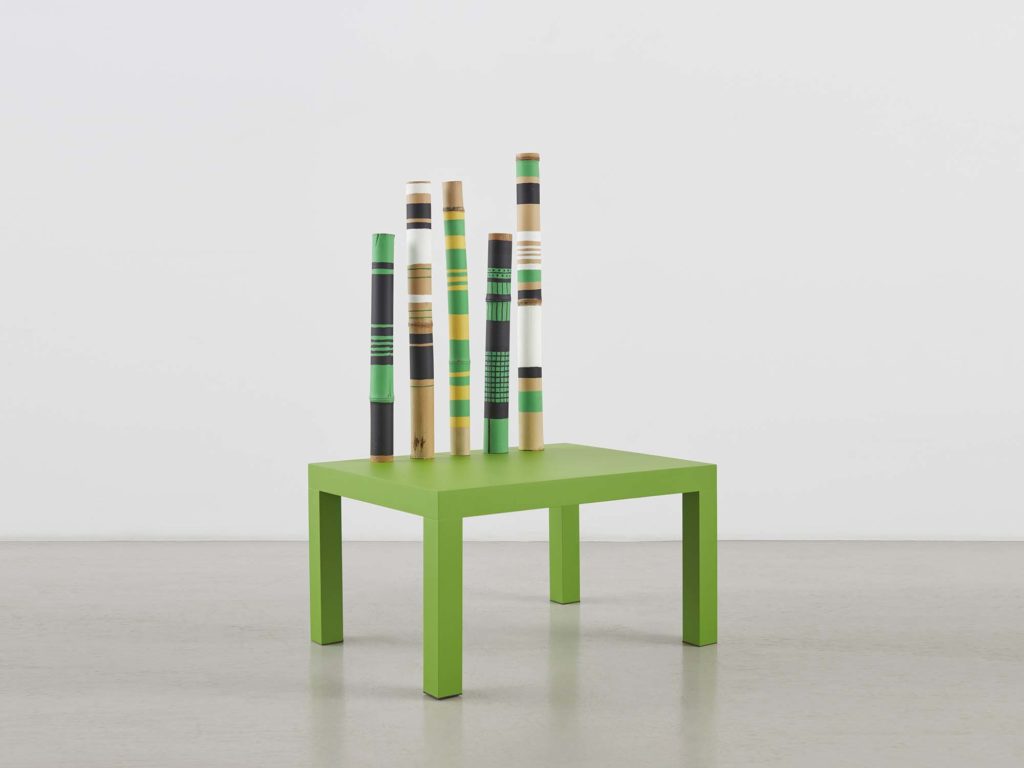DESIGN: Andrea Branzi-Contemporary DNA
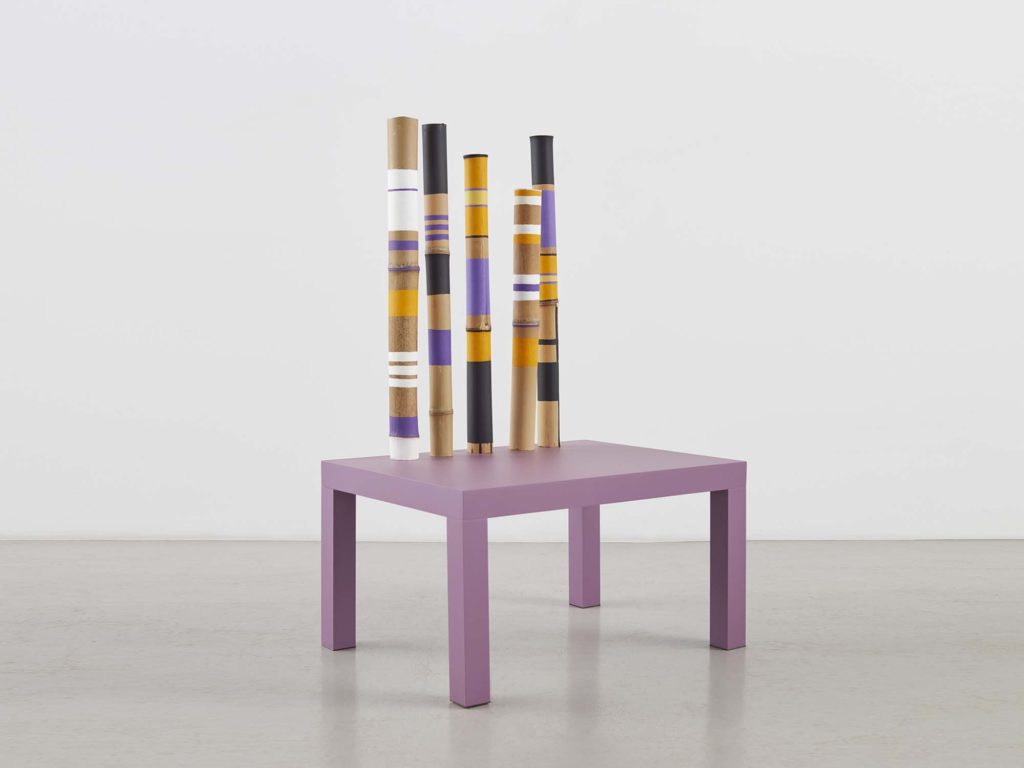 Andrea Branzi’s artistic approach consists of an attempt to connect the industrial world to the poetry of nature. This can be seen clearly in his collection Tree. He notes, “Trees, trunks, and branches are part of our ancient culture, but also of actual culture, because in the age of globalization, design seeks to trace recognizable anthropological platforms.”
Andrea Branzi’s artistic approach consists of an attempt to connect the industrial world to the poetry of nature. This can be seen clearly in his collection Tree. He notes, “Trees, trunks, and branches are part of our ancient culture, but also of actual culture, because in the age of globalization, design seeks to trace recognizable anthropological platforms.”
By Dimitris Lempesis
Photo: Friedman Benda Archive
The seminal Italian designer and architect Andrea Branzi presents his solo exhibition “Contemporary DNA”. An exemplary social thinker and educator, Branzi has been a fundamental voice in post-war and contemporary architecture and design, in Italy and abroad, since the mid 1960s. A culmination of his intuitive processes of turning research into physical form, this comprehensive and far-reaching exhibition unveils three new bodies of work: “Roots”, “Germinal Seats”, and “Buildings”. Presciently taking stock of our time, these works are composed of exceptions and variations throughout Andrea Branzi’s artistic evolution. Throughout his influential career, Branzi maintained a fascination with human and object interactions, exploring them through radical and poetic interpretations of the domestic space. Understanding objects as living presences in the human habitat allowed Branzi to establish complex psychological, symbolic, and poetic relationships with them. He believed that objects were never just simple tools, but fragments of an anthropological universe, “a universe at the same time material and immaterial, functional and superfluous, about which we still know very little”. In the mid-eighties, two decades after co-founding the radical architecture and design studio Archizoom, Branzi turned away from the highly-stylized aesthetic of postmodern design to embrace a movement he called “neoprimitivism.” Culminating in his seminal “Animali Domestici” (1985-86) series, this exploration combined rectilinear and industrial sensibilities with natural elements such as logs, sticks, and wood offcuts. As he says “Generally, I work in different languages and am often surprised by the outcome. I hope the viewers can feel surprised in turn, even if for different reasons than mine. The meaning doesn’t pass through words, but personal feelings and impressions”. The tensions between commodified and natural, gestural and methodical, artisanal and industrial, landscape and architecture, are most recently explored in “Roots” and “Germinal” Seats. Consisting of sticks and driftwood, “Roots” points to what has been abandoned and is now preserved as a relic of a distant time. Noble memories that we protect in cages; the roots of our aesthetic values. The bamboo in “Germinal Seats” is colorful yet precise. It guides us towards a rich and orderly world; an infinite architecture that belongs to thought. The objects Branzi is interested in are not simply defined by their rational functions, but by the ways in which they reconstitute space; a space that is both physical and immaterial, present and mnemonic. The cabinets in the “Buildings” series are vessels to be filled with personal objects from daily life: plates, books, bottles, pots. With these works, Branzi makes evident that the true urban experience is not composed of architecture, but of the presence of micro-environments in human memory.
Photo: Andrea Branzi, Germinal Seat, 2022, Hand painted bamboo, painted aluminum, 48.75 x 31.5 x 23.75 inches, 124 x 80 x 60 cm, Unique, from a series of 12, Courtesy Andrea Branzi and Friedman Benda
Info: Friedman Benda, 515 West 26th Street, New York, NY, USA, Duration: 2/3-22/4/2023, Days & Hours: Mon-Sat 10:00-18:00, www.friedmanbenda.com/
